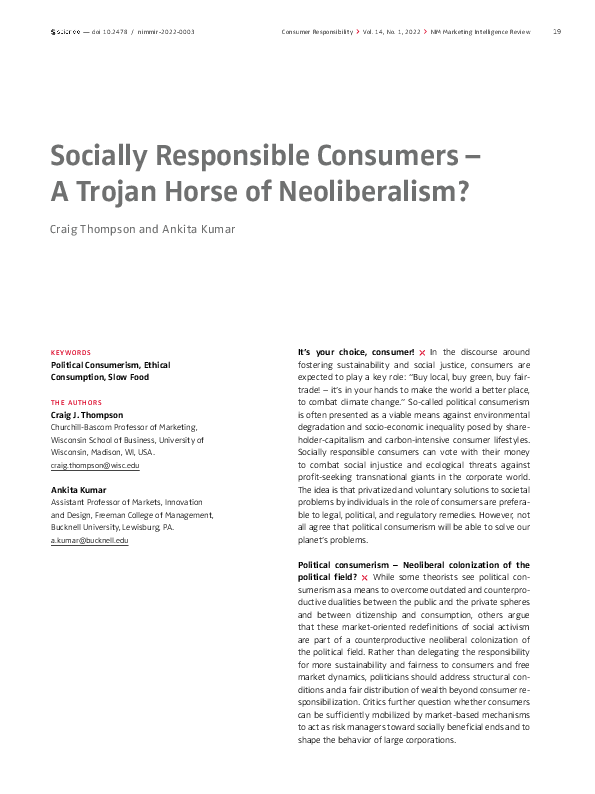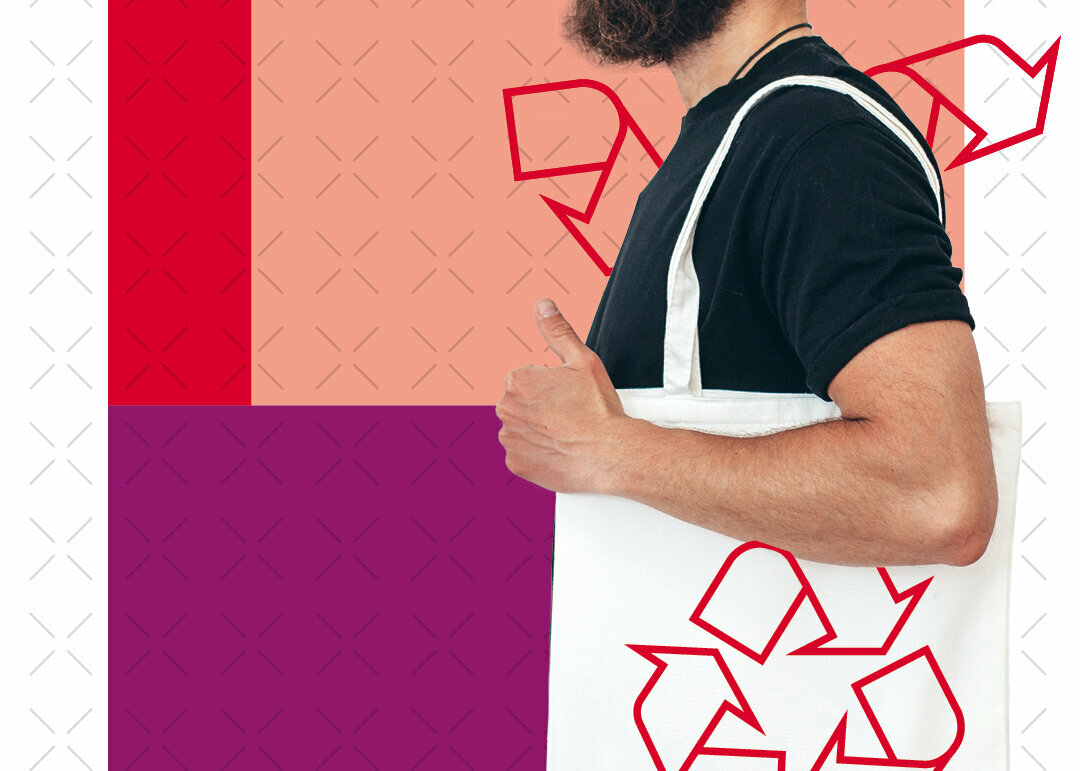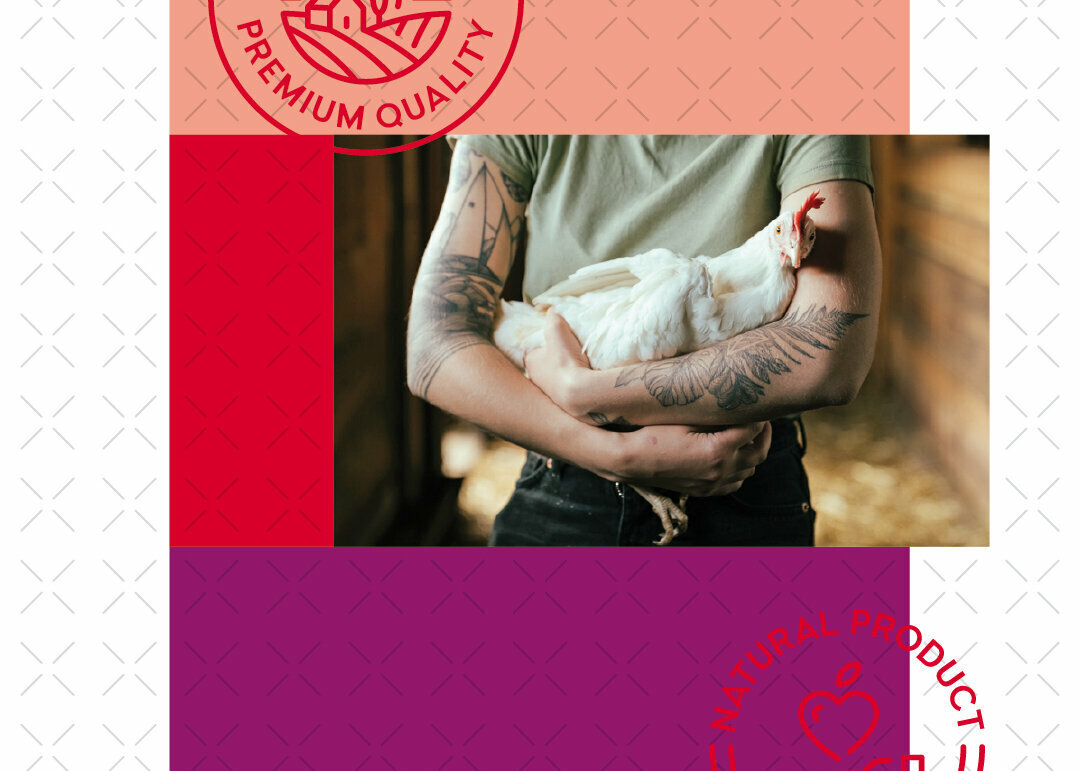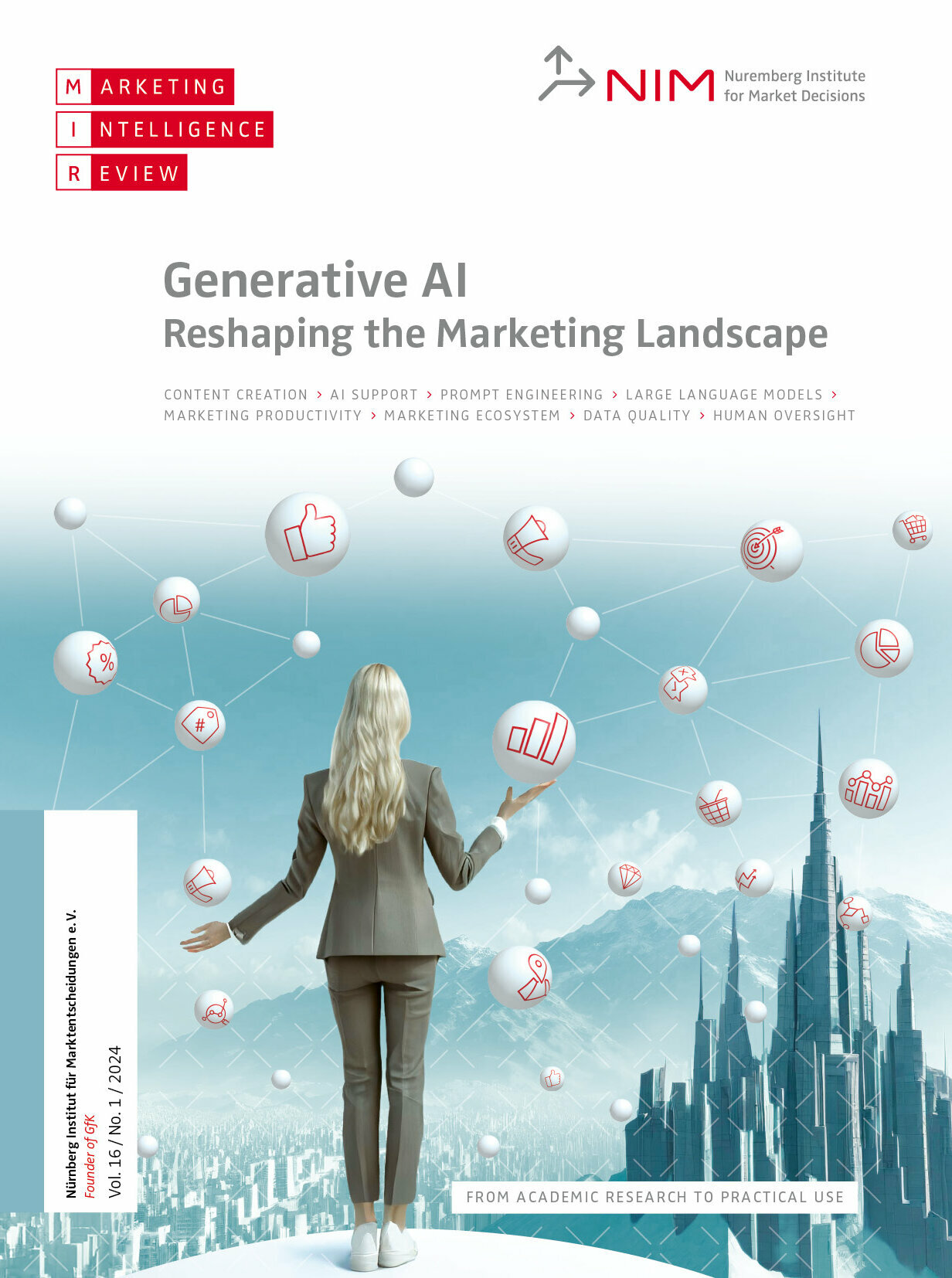Socially Responsible Consumers – A Trojan Horse of Neoliberalism?
Keywords: Political Consumerism, Ethical Consumption, Slow Food
Abstract
Political consumerism is often presented as a viable means against the environmental degradation and socio-economic inequality posed by shareholder capitalism and carbon-intensive consumer lifestyles. The idea is that privatized and voluntary solutions to societal problems by individuals in the role of consumers are preferable to legal, political, and regulatory remedies. However, not all agree that political consumerism will be able to solve our planet’s problems. Critics question whether consumers can be sufficiently mobilized by market-based mechanisms to act as risk managers towards socially beneficial ends and to shape the behavior of large corporations.The in-depth study of the Slow Food Movement suggests that market-mediated approaches need not be condemned in the context of political consumerism. Political consumerism won’t be the savior of our world, but it is one of the many pieces in the puzzle of a more sustainable society.











